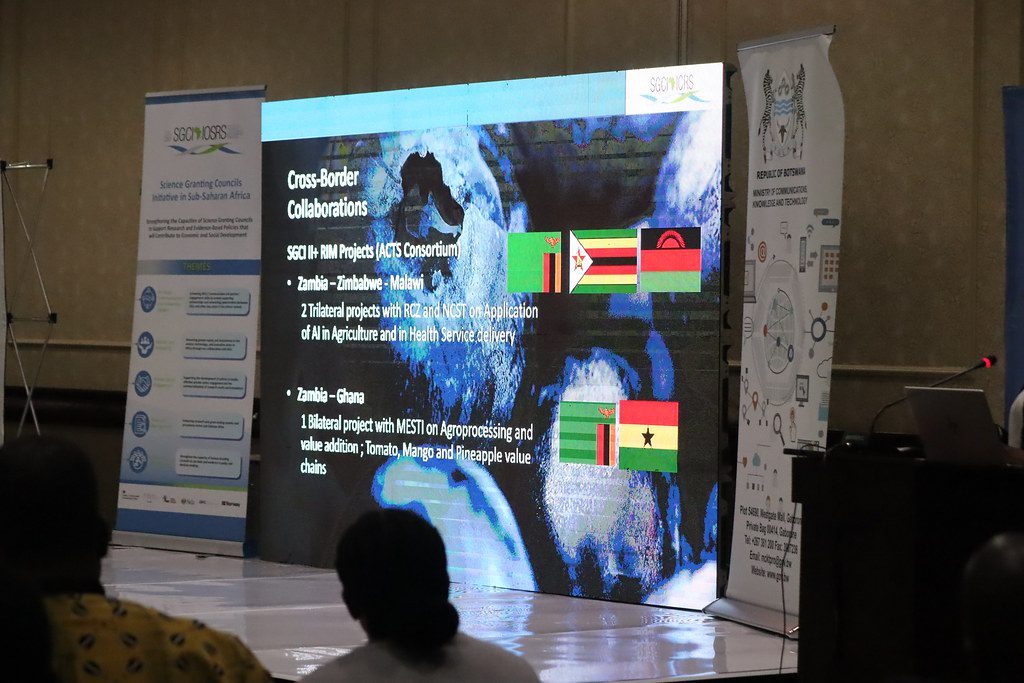SGCI News
[KAMPALA, SciDev.Net] In Uganda’s Masaka district, Josephine Nabbanga tends to her growing colony of crickets. High in protein, the insects are a popular snack in Uganda and an important food…
- Ugandan researchers turn food waste into cricket feed
- Crickets are a protein-rich snack and source of income for farmers
- Project addresses waste problem and high cost of animal feed
[KAMPALA, SciDev.Net] In Uganda’s Masaka district, Josephine Nabbanga tends to her growing colony of crickets.
High in protein, the insects are a popular snack in Uganda and an important food source for humans and animals.
Like many small-scale farmers across the country, Nabbanga used to rely on poultry feed to nourish her insects, an option she says was expensive and unreliable.
Things changed for her when researchers from Uganda Christian University (UCU) began supplying farmers with a new, locally formulated cricket feed made from domestic food waste.
The feed, designed specifically for cricket farming, is not only cheaper but more efficient.
“We saved a lot of money,” said Nabbanga.
“This is a game changer we intend to use for our piggery too, not just crickets.”
Nabbanga represents thousands of small-scale cricket farmers across Uganda struggling with both the rising cost of animal feed and the growing burden of uncollected urban food waste.
Double solution
Cricket farming provides a promising and eco-friendly protein alternative, but the cost of feed — around US$0 .68 per kilogram for poultry mash — has stunted its growth.
To address this, a team led by Geoffrey Ssepuuya, a senior lecturer at UCU, launched a project in September 2023 to develop low-cost, high-protein cricket feed from food waste.
“We are using one problem to solve another,” Ssepuuya said. “We have a waste problem and a feed problem. By converting food waste into cricket feeds, we are solving both at once.”
With support from the Science Granting Councils Initiative (SGCI), the project received US$29,473 in the first phase to develop and test the feed formulations, and US$63,750 in the second phase to build a cricket production facility, package the feed, and establish a system for sorting and collecting food waste.
Collected food scraps such as banana peels and rice are heat-treated, dried, ground into powder, and blended into nutrient-rich cricket feed.
According to Ssepuuye, the result is a feed comparable to commercial broiler starter mash, helping crickets mature in eight to ten weeks, compared to 12 weeks with traditional local feeds.
Ssepuuye said the feed was designed to support quick growth and high reproduction as crickets lay hundreds of eggs, so numbers can increase fast.
Clogged drains
According to the Kampala Capital City Authority (KCCA), only 45 per cent of the city’s 481 kilotonnes of solid waste is collected daily, leaving the majority to clog drainage systems and pollute the environment.
“Uncollected waste ends up in trenches, causing floods when it rains,” said Daniel Nuwabiine, KCCA spokesman. “We need partners and solutions like this. We welcome this innovation.”
Ssepuuya says up to three tonnes of food waste per day would be used, providing a cleaner, more sustainable feed than animal-based products.
“Go to the slaughterhouses and see the waste and smell what it produces,” he said. “Cricket farming doesn’t come with any of that burden.”
Beyond environmental benefits, the project has the potential to boost household incomes and national nutrition.
With a cheaper feed supply, farmers can scale up their cricket operations, sell both mature crickets and eggs and earn more.
Restaurants and markets, in turn, become suppliers of food waste, creating a circular economy.
The project team plans to seek certification from the Uganda National Bureau of Standards, a necessary step before large-scale commercial rollout.
This article was written by: John Musenze
Related News
How Zambia’s science council is funding research that matters
When Zambia’s National Science and Technology Council (NSTC) was established in 1997, its founding vision was to harness science, technology, and innovation to improve the lives of ordinary Zambians. More than two decades later, that vision is increasingly taking shape through a growing portfolio of…
Voices of SGCI: Council leaders on the direction and ambition of SGCI 3
At the African Union’s Science, Technology and Innovation Week in Addis Ababa, earlier this month, leaders of science granting councils reflected on what SGCI Phase 3 represents for Africa’s science and innovation systems. From ownership and alignment to stewardship and sustainability, here are their voices…
Building Africa’s science future: inside the SGCI alliance
As Phase 3 of the Science Granting Councils Initiative launches on the margins of the African Union Summit in Addis Ababa last week, the SGCI Alliance Chair explains why this moment marks a decisive turning point for African science. Cephas Adjei Mensah describes what is…
SGCI funded projects
Rwanda’s integrated approach to sustainable agriculture and nutrition
Project Titles & Institution Areas of Research Number of Projects being funded Project Duration Grant Amount In-Kind Distribution Council Collaboration with other councils





